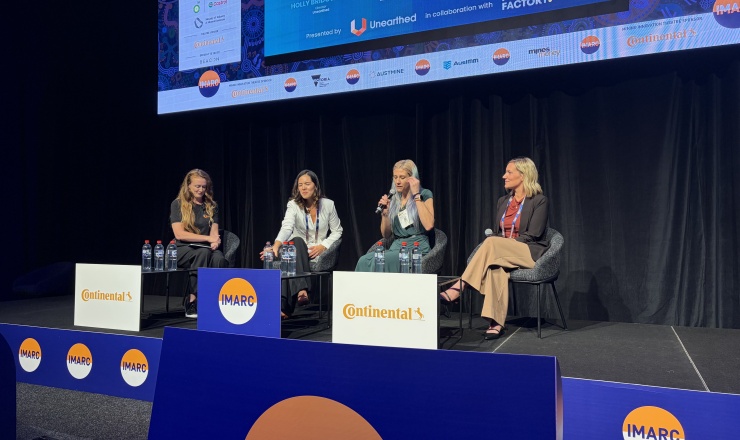
Funding the Future of Mining Tech at IMARC 2025
Hosted by Unearthed in collaboration with Founders Factory , our session “Funding the Future of Mining Tech” brought together a
Read articleThe challenge was to develop state-of-the art machine learning algorithms to predict downhole gauge pressure in gas wells.
Pressure measurements are important inputs for production optimisation, simulation, and forecasting. Physical pressure gauges have significant reliability issues, resulting in costly maintenance requirements, and a loss of pressure data. This is an industry wide problem, where predictive models could offer a solution.
Francisco took out the top spot in the challenge with a best in class machine learning approach. Here you can get to know him a bit more!
I take part because I am passionate about data science, and because I want to become better every day and this is the best way for me.
Tell us a little bit about how you apply data science across in your job and as a hobby. What do you love about it?
In my work I usually apply data science to the field of renewable energies. From monitoring, detection of anomalies, consumption prediction, etc. Right now I am developing a microservice that is capable of making predictions of production and consumption.
How did you acquire your data science skills?
I would say that I have been acquiring my knowledge progressively thanks to the day to day work, the competitions that I do in my free time and the passion that I have for data science (I am always reading things about new methods or approaches to different problems)
Do you have a favourite library to work with and if so, why?
It depends on what for, but if I had to say which is my favourite library among all the ones I know, I would say ggplot (it is a visualization library for R). It is very intuitive and powerful.
Brainstorm constantly, think creatively in the different areas, feature engineering, feature selection, target transformation, outliers detection, etc...
How did you work on the competition? Was it a daily effort? Did you do a lot of research along the way or relied on their prior knowledge?
I started by understanding the problem and all the details of the competition. Later, I made a baseline including all the variables provided raw to establish a baseline from which to improve.To improve this baseline there are several very important things:
I worked almost daily on this challenge, the truth is that I was quite hooked.
What did you learn through the latest competition?
I have learned that it is important to have a considerably robust code that allows you to experiment with your new ideas easily, that it is very important to keep track of the things you have tried and that if I propose to myself to do a good job I can compete quite well.
In addition, technically, I have better understood the importance of concepts such as:
Why do you take part in data science competitions?
I take part because I am passionate about data science, and because I want to become better every day and this is the best way for me.